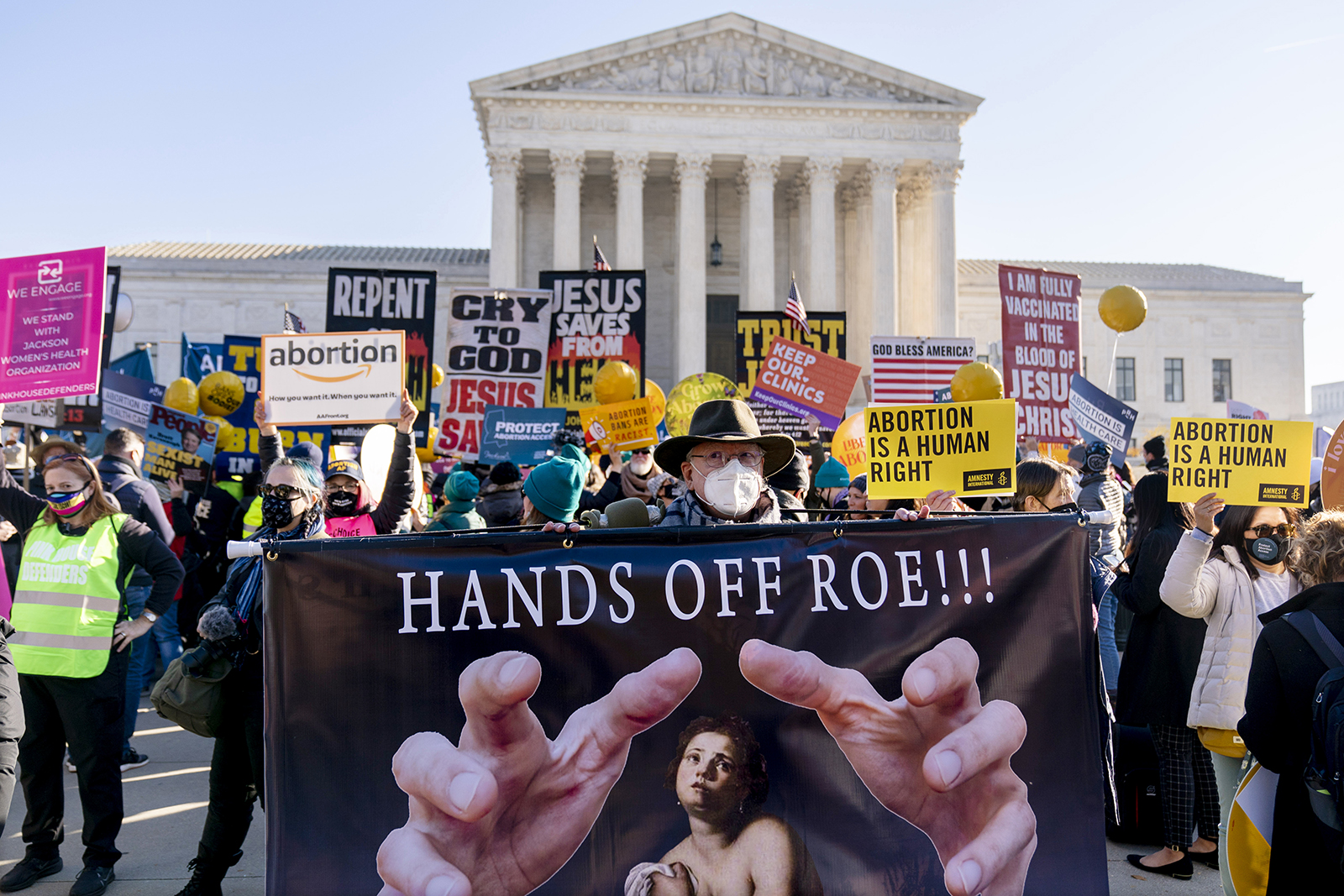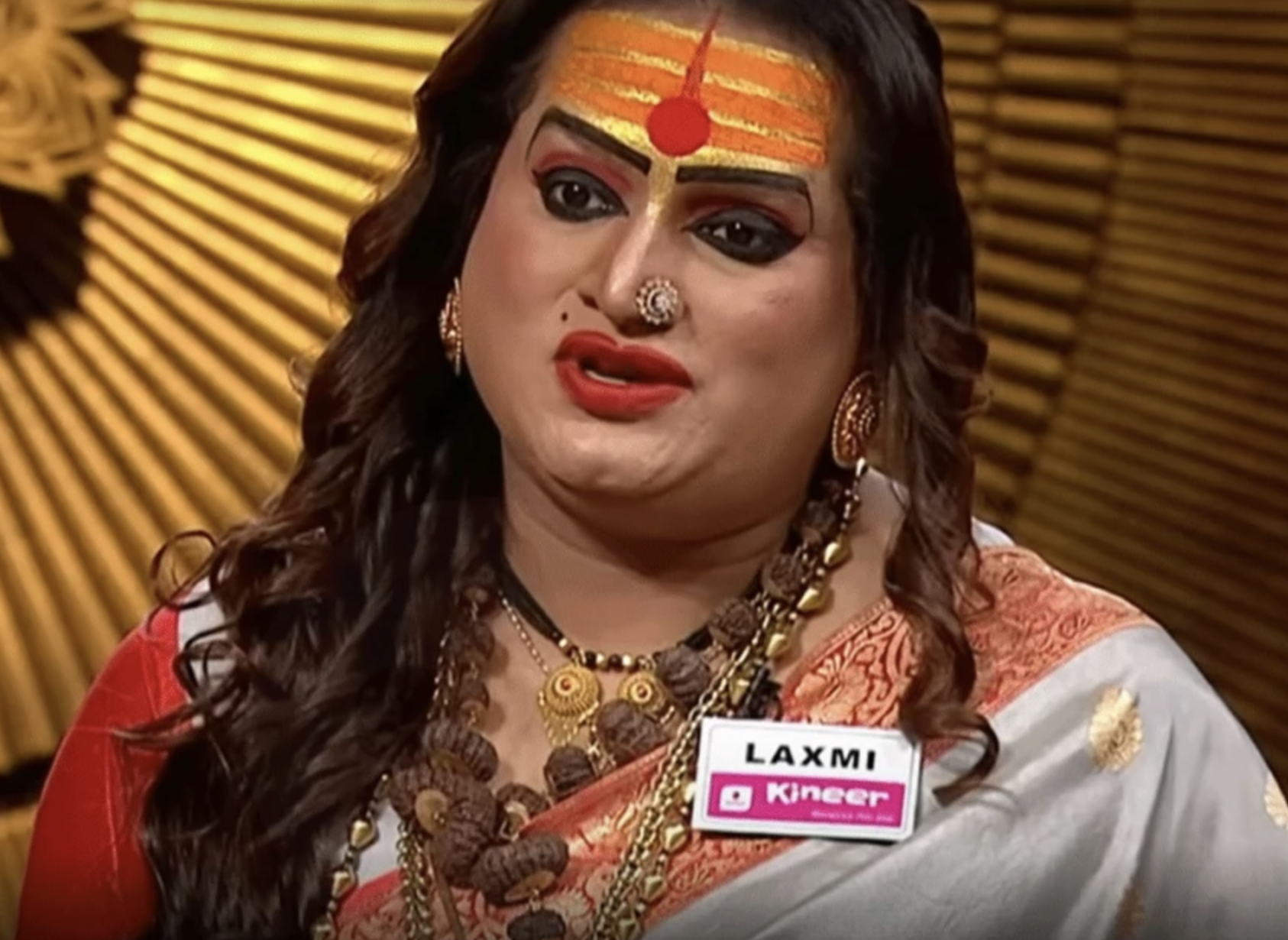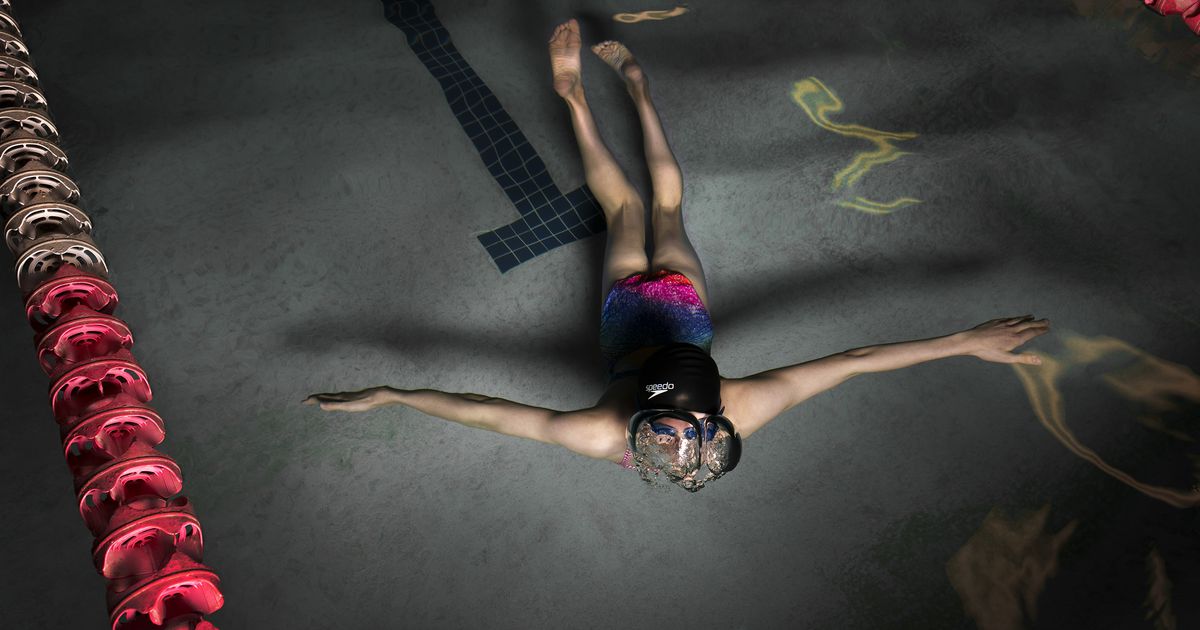
Why Mississippi's anti-abortion law is also an assault on LGBTQ+ rights - Religion News Service

(RNS) — When I was in high school in the late ’80s and early ’90s in a Chicago suburb, my friend and I would head into the city every Saturday morning with our new driver’s licenses to do “clinic defense.”
Operation Rescue — highly organized anti-abortion protesters with gory signs — would stand in large groups outside a reproductive health clinic in those days and try to dissuade patients from going inside. We were there to help escort them safely from their car into the building. (The need for clinic defense continues.)
We got to know some of the other escorts. The kind of people who did clinic defense on Saturdays went to Queer Nation on Tuesdays, ACT UP (AIDS Coalition to Unleash Power) on Wednesdays, the Women’s Action Coalition on Mondays, and presumably had the night off for laundry on Thursdays.
They invited us to get involved with their grassroots safer-sex and HIV education work, suggesting we join them in disseminating safer-sex and AIDS education information in high schools — we kids sure weren’t being taught to stay safe from AIDS any other way.
RELATED: Religious abortion rights supporters fight for access
They were busy because they had to be busy. A mixed-gender group of 20-something queers, they were full-pedal to the wall on reproductive rights and access, LGBTQ+ rights and AIDS health and justice. They understood how body politics, autonomy politics and sexual politics were all intertwined.
They still are. On Wednesday (Dec. 1) — World AIDS Day — the U.S. Supreme Court heard oral arguments in Dobbs v. Jackson Women’s Health Organization, the result of which will be either to approve Mississippi’s law establishing a 15-week abortion ban or to deem it unconstitutional. If the former, the high court will do what the state of Mississippi has asked the court to do and overturn Roe v. Wade.
An end to Roe would be disastrous for so many. While a future without Roe would not necessarily mean a ban on all abortions, such a ban would lead to a 21% rise in the number of overall pregnancy-related deaths — and a 33% rise in such deaths among Black women. This higher latter number is because of systemic racism in health care and beyond: food deserts, unjust wages, mass incarceration and more. (This doesn’t overlook the many safe, joyful birthing experiences, particularly when Black parents are supported by community.) Abortion bans do have dire and fatal consequences and Black women, nonbinary people and trans men pay the highest price.
People who are denied access to reproductive health care are more likely to live in poverty and to remain in abusive relationships as a result of that denied care. People who are struggling financially; Black, Indigenous and people of color communities; young people; those in rural communities; immigrants; people living with disabilities/disabled people; and LGBTQ+ individuals are impacted disproportionately.
The stakes for LGBTQ+ Americans are still high. Jonathan Mitchell, one of the architects of SB 8, Texas’ draconian six-week abortion ban, filed an amicus brief in Dobbs on behalf of Texas Right to Life, inviting the court to overrule not only Roe v. Wade but also Planned Parenthood v. Casey, which upheld Roe in 1992. Notably, however, the brief also invites the court to reverse Lawrence v. Texas and Obergefell v. Hodges, the 2003 and 2015 decisions that decriminalized sodomy and granted marriage equality, respectively. While striking down Roe will not undermine many Supreme Court precedents, Mitchell writes:
The news is not as good for those who hope to preserve the court-invented rights to homosexual behavior and same-sex marriage. … These “rights,” like the right to abortion from Roe, are judicial concoctions, and there is no other source of law that can be invoked to salvage their existence. … This is not to say that the Court should announce the overruling of Lawrence and Obergefell if it decides to overrule Roe and Casey in this case. But neither should the Court hesitate to write an opinion that leaves those decisions hanging by a thread. Lawrence and Obergefell, while far less hazardous to human life, are as lawless as Roe.
Brutal words to hurl at people’s marriages, their safety, their loves, their protections, their ability to engage in the most intimate acts of consensual adult loving.
And it’s not much of a surprise to anyone that Mississippi, at the heart of Dobbs, signed the first anti-transgender bill of 2021 into law, banning trans athletes from playing in school sports. Or that more than 40 anti-trans bills have been filed in Texas, with a law similar to Mississippi’s barring trans athletes recently signed into law.
The connection between abortion rights and access and LGBTQ+ rights was clear back when I was defending patients in front of clinics, and it should be clear to us now.
It’s about who gets autonomy over their body. Who is granted access to the health care they need. Which citizens and denizens get rights. Whose safety matters. Who gets agency. Who has power. Who is in control. Who decides what freedom is. Who gets dignity. Who gets wholeness. Whose life counts. Who is disposable. Who decides. Who is decided for.
Therefore, we must all be busy now. Today I am one of the National Council of Jewish Women’s more than 1,500 Rabbis for Repro, committed to preaching, teaching and advocating for abortion justice. But any of us can make a big difference by adding just a few hours or minutes of advocacy to our week.
Mondays can be for contacting your senators to demand that they pass the Equality Act, which would add explicit protections against discrimination based on sexual orientation and gender identity to our civil rights laws, and the Women’s Health Protection Act, which would protect the right to access abortion care throughout the United States. (Despite the name of the bill, some nonbinary people and trans men also need access to abortion care.)
Tuesdays can be for reaching out to your state legislators about bills that specifically impact the LGBTQ+ community. (This tracker can help.) Wednesdays can be for telling the Biden-Harris administration to end restrictions on medication abortion, and Fridays or the weekend can be for clinic escorting. And Thursdays? Thursdays can be for laundry.
(Rabbi Danya Ruttenberg is an author, speaker and scholar in residence at the National Council of Jewish Women. The views expressed in this commentary do not necessarily reflect those of Religion News Service.)






























